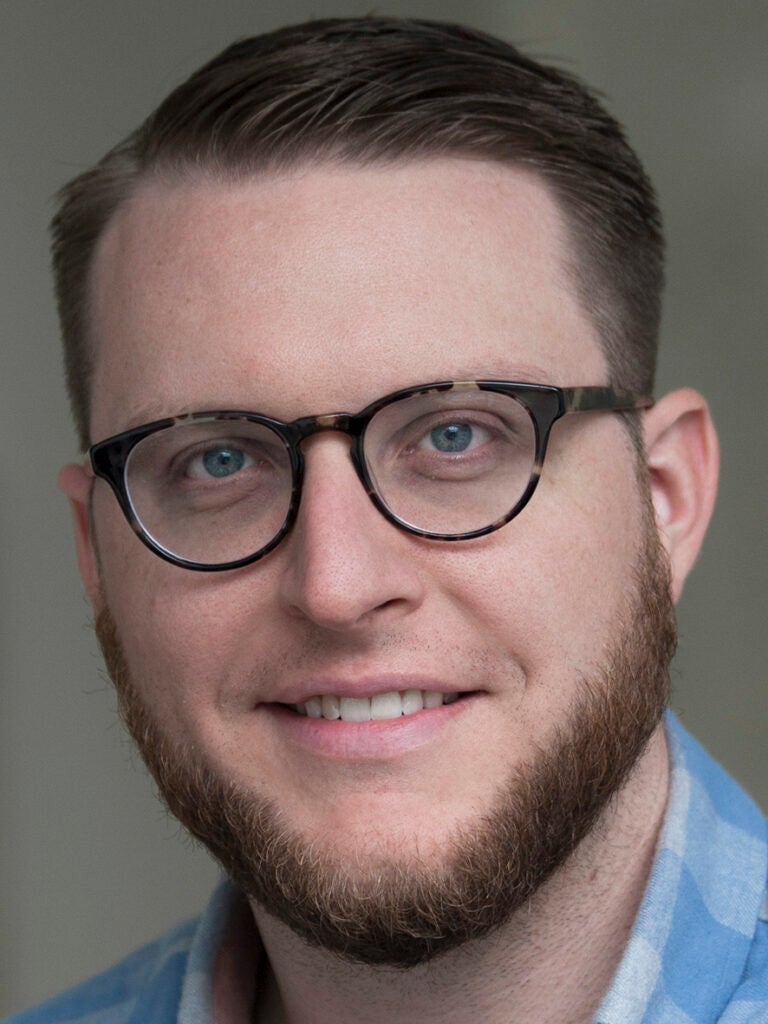Alexander Clapp
Alexander Clapp is a journalist based in Athens. He writes about the Balkans for publications such as the London Review of Books, The Economist and New Left Review. He is a recipient of the Matthew Power Literary Reporting Award and a Robert B. Silvers Foundation Grantee. His 2020 article on Europe’s largest heroin bust for The New Republic was awarded a Pulitzer Center Breakthrough Journalism Prize and is currently being turned into a documentary by the BBC. At the Berggruen Institute and USC, Clapp plans to research the international garbage trade for a book he is writing for Little, Brown. The book explains how the global waste trade began, how it destroys the earth, and details the geopolitical rivalries it has brewed between states of the North and South.

Ziyaad Bhorat
Ziyaad Bhorat is a South African political theorist who researches automated technologies and democratic governance, drawing insights from the history of political thought. His work has been published in academic and general audience outlets across the US, UK, and South Africa, on topics ranging from Aristotle to AI judges. His Ph.D. (Political Science) will be completed in 2022 at UCLA, where he also received his M.A. He also holds an M.B.A., and an M.Sc. (African Studies) from the University of Oxford, studying there as a Rhodes Scholar, and a B.Bus.Sci. (Economics with Law) from the University of Cape Town. He is a faculty lecturer on technology and politics for EquiTech Futures, and has moreover worked in media and telecoms industries, consulting for companies like The Walt Disney Co. With the support of the USC Berggruen Fellowship, his projects will examine the classical foundations and implications of a new despotism within the context of rising digital authoritarianism.

Lorenzo Marsili
Lorenzo Marsili is an activist philosopher and writer, focusing his research and political work on defining and advocating for a future beyond the nation state. He is the founder of transnational political NGO European Alternatives, of cultural institution Fondazione Rizoma, and was one of the initiators of pan-European political movement DiEM25. He is an active public speaker and media commentator internationally and was the founding editor of the independent journal Naked Punch Review in London and Beijing. He has degrees in philosophy and sinology from the University of London and his books include Il Terzo Spazio (Laterza, 2017), Citizens of Nowhere (Zed Books, 2018), La tua patria è il mondo intero (Laterza, 2019), and Planetary Politics (Polity Press, 2020). He lives between Palermo and Berlin. At USC and the Berggruen Institute, he will work on a new book focussing on the opportunity China presents the West for a redefinition of globalisation and the role of Europe as a laboratory for a new planetary politics.
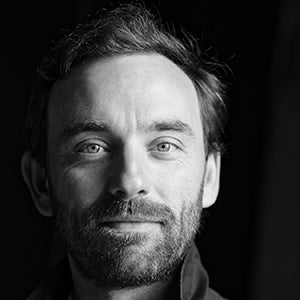
Lois Rosson
Lois Rosson received her Ph.D. from the History Department at U.C. Berkeley in 2022, where she specialized in the History of Science. Her undergraduate training is in fine art, and prior to starting graduate school she held a graphic design internship at NASA’s Ames Research Center. The experience spurred an ongoing interest in pictorial representations of space subjects and the visual culture of scientific institutions. She has since been a Guggenheim Fellow at the Smithsonian’s National Air and Space Museum, a research associate at Lawrence Livermore National Lab, and holds the 2023 – 2024 Octavia E. Butler Fellowship at the Huntington Library. At USC and Berggruen, she will complete her first book manuscript, which examines the impact of midcentury astronomical illustration on perceptions of space landscapes in both the popular and scientific imaginaries. By focusing on illustrators as a group with tangible influence over the “look” of space in the twentieth century, the project explains why certain visual tropes—such as the persistent characterization of space as a type of western frontier—continue to permeate contemporary aerospace.
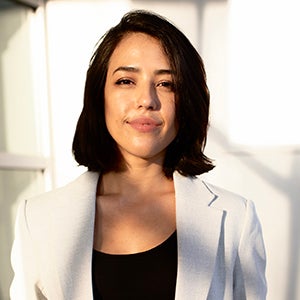
Harpreet Sareen
Harpreet is an Assistant Professor of Interaction and Media Design and Director of Synthetic Ecosystems Lab at The New School. His research is situated at the intersection of Material Science, Biology and Electronics and draws on the complementary abilities of the biological and artificial worlds. He terms this as ‘Convergent Design’ and creates bionic materials and hybrid substrates that lend themselves for future ecological machinery, sensing systems and interaction design. Harpreet has previously created robots driven by physiological signals of plants, nanosensors inside plant leaves for water monitoring and grown electronic nanowires inside plant stems. His experience spans corporate research wings, studios, museums to academic centers having previously worked at Ars Electronica Museum, Google Creative Lab, Microsoft Research, National University of Singapore, Keio University, Telecom Paris and The University of Tokyo. He has previously been named as MIT Technology Review Under 35 Innovator and awarded CHI Golden Mouse, Edison Award – Gold, SXSW Interactive Innovation Award and Fast Company World Changing Ideas. At Berggruen and USC, Harpreet will be creating installations that refocus the human attention on underwater macroalgae through recording of their physiological phenomena in various coasts of the world.
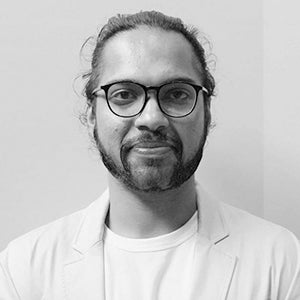
Anna Weichselbraun
Anna Weichselbraun is an anthropologist of knowledge, technology, and governance. She is a Visiting Assistant Professor in the Department of European Ethnology at the University of Vienna. She holds a Ph.D. in sociocultural and linguistic anthropology from the University of Chicago, and has previously worked at Stanford’s Center for International Security and Cooperation. Her book manuscript on the knowledge practices of nuclear safeguards inspectors at the International Atomic Energy Agency is under review with Cornell University Press. At Berggruen, Anna will examine the vibrant efforts of Web3 software engineers, designers, and artists to build radically inclusive and participatory online communities and alternative economies. These efforts to reimagine the future of social and political life mediated by decentralized digital ledger technologies, she proposes, might offer productive insights for conceptualizing and designing institutional forms that scale to problems of long-term planetary governance.
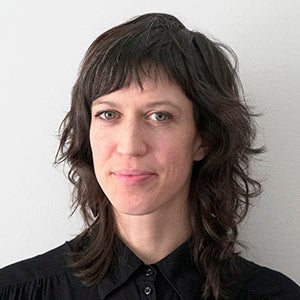
Cameron Brinitzer
Cameron Brinitzer will earn his Ph.D. from the University of Pennsylvania’s Department of History and Sociology of Science in 2022. With Etienne Benson, he co-edited and contributed to an Isis Focus section (March 2022 issue) that investigates some of the ways that field concepts, fieldwork practices, and field sciences have been transformed since the mid-twentieth century. His dissertation and first book project, Culturing Evolution: A History and Anthropology of a Cognitive Science of Culture in Illiberal Hungary, examines how life and mind scientists have operationalized concepts of culture such that this famously nebulous epistemic object can be measured and materialized in laboratory experiments and incorporated into evolutionary theories. His fieldwork with cognitive scientists at the Central European University unfolded amid the CEU’s forced move from Budapest to Vienna, after the university was legislated out of Hungary by the country’s avowedly “illiberal” government. As a USC Berggruen Fellow, Brinitzer will work toward completing his first book project, while beginning an adjacent project focused on the recent history of supranational scientific funding instruments in Europe, the rise of illiberal and nationalist political movements across the continent, and emerging relations between sciences and politics of culture today.
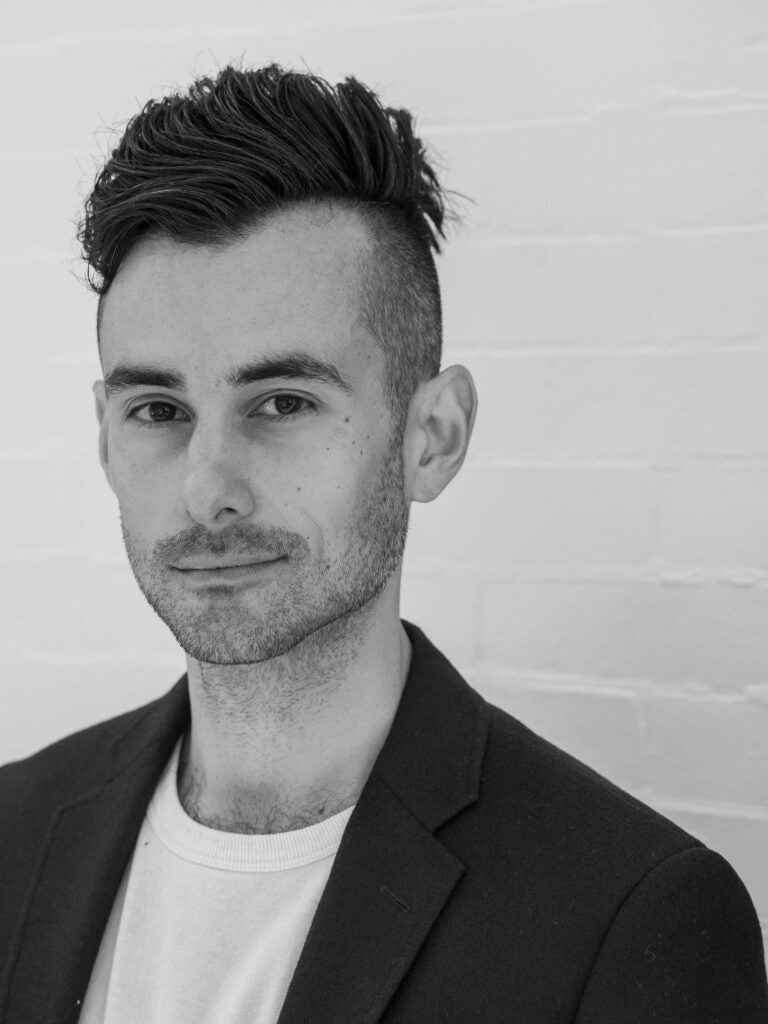
Isabella Weber
Isabella M. Weber is a political economist working on China, global trade and the history of economic thought. She is an Assistant Professor of Economics and the Research Leader for China of the Asian Political Economy Program at the Political Economy Research Institute at the University of Massachusetts Amherst. Her first book How China Escaped Shock Therapy: The Market Reform Debate is the winner of the Joan Robinson Prize 2021 and the International Studies Association Best Interdisciplinary Book Award and has been recommended on best book of 2021 lists by the Financial Times, Foreign Policy, Project Syndicate, ProMarket and Folha de S.Paulo among others. For her work on the rise of economics in China’s recent history she has won the International Convention of Asia Scholars’ Ground-breaking Subject Matter Accolade and the Warren Samuels Prize for Interdisciplinary Research in History of Economic Thought and Methodology. Previously she was a Lecturer at Goldsmiths, University of London, and has been the principal investigator of the ESRC-funded Rebuilding Macroeconomics project What Drives Specialization? A Century of Global Export Patterns. Isabella holds a Ph.D. in Economics from the New School for Social Research, New York, and a Ph.D. in Development Studies from the University of Cambridge. As a USC Berggruen fellow she will work on her next book project which will re-conceptualize the ways in which we think about monetary stability from a comparative historical and institutional perspective foregrounding the role of essential goods and economic activities.
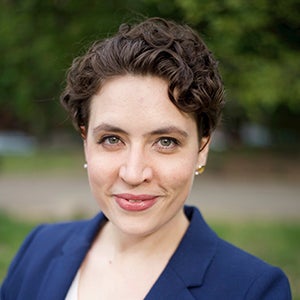
Boris Shoshitaishvili
Boris Shoshitaishvili is a science studies scholar with a background in evolutionary biology, comparative literature, and ancient Greek epic poetry. His work focuses on the relationship between the Earth sciences, globalization, and collective identity. He has published articles and reviews in Earth’s Future, The Anthropocene Review, and Bryn Mawr Classical Review, and co-authored scientific papers in Ageing Research Reviews and The Journal of Vertebrate Paleontology. He completed a postdoctoral fellowship in UC Berkeley’s Anthropology department after earning his PhD in Comparative Literature from Stanford. As a USC Berggruen Fellow, Boris is working on a book exploring how we can understand certain concepts from the Earth sciences – the Anthropocene, Gaia Theory, and the Noosphere – as early attempts to formulate specific “planetary identities,” which are poised to influence cultural, political, and institutional practices in the near future.
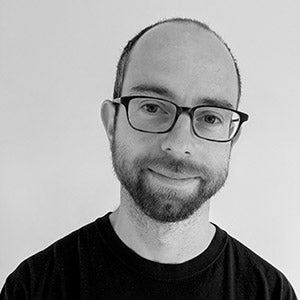
Inho Choi
Inho Choi is a Political Science Ph.D. candidate at Johns Hopkins University, expecting to receive his degree in July 2022. He holds his M.A. and B.A. in Political Science from Seoul National University. He investigates ways to utilize East Asian political thought and international history for reconstructing the foundational concepts of the contemporary global order, such as sovereignty. His article, “‘Chinese’ hegemony from a Korean shi perspective,” proposed the rule of virtue to reorient sovereignty toward attunement to human and non-human cosmic forces and has appeared in International Relations of the Asia-Pacific. At the Berggruen Institute and USC, he will continue the research on the rule of virtue and write his book on the virtues of the state in East Asian International Relations. He will also extend the analysis of his book in two related projects. First, he explores how the fractal conception of space in East Asia can resolve conflicts of territorial sovereignty. Finally, he uses the Neo-Confucian notion of cosmic attunement to provide a novel normative language for ordering great power politics in the age of Anthropocene.
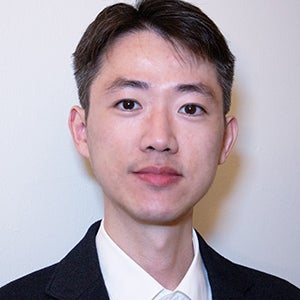
Peter Ekman
Peter Ekman is a continuing 2021-2024 USC Berggruen Fellow. He holds a Ph.D. in geography from the University of California, Berkeley. He has held postdoctoral fellowships at Harvard University’s Dumbarton Oaks Research Library and Collection in Washington, D.C., and at Cornell University’s Clarence Stein Institute for Urban and Landscape Studies. His work has appeared in History of the Human Sciences, Planning Perspectives, the Journal of Planning History, and the Journal of Urban History, among other venues. A cultural and historical geographer, he writes on cities, suburbs, and metropolitan regions across the long twentieth century, chiefly but not only in the United States. His first book, under review, assembles a hemispheric intellectual history of postwar planning, urbanism, design, and social science. At USC, he will be directing a project on urban futures, posing questions about knowledge, expertise, and the temporalities underlying what it is to plan. As a continuing fellow at Berggruen, he will be further conceptualizing the spatial and scalar dimensions of the planetary.
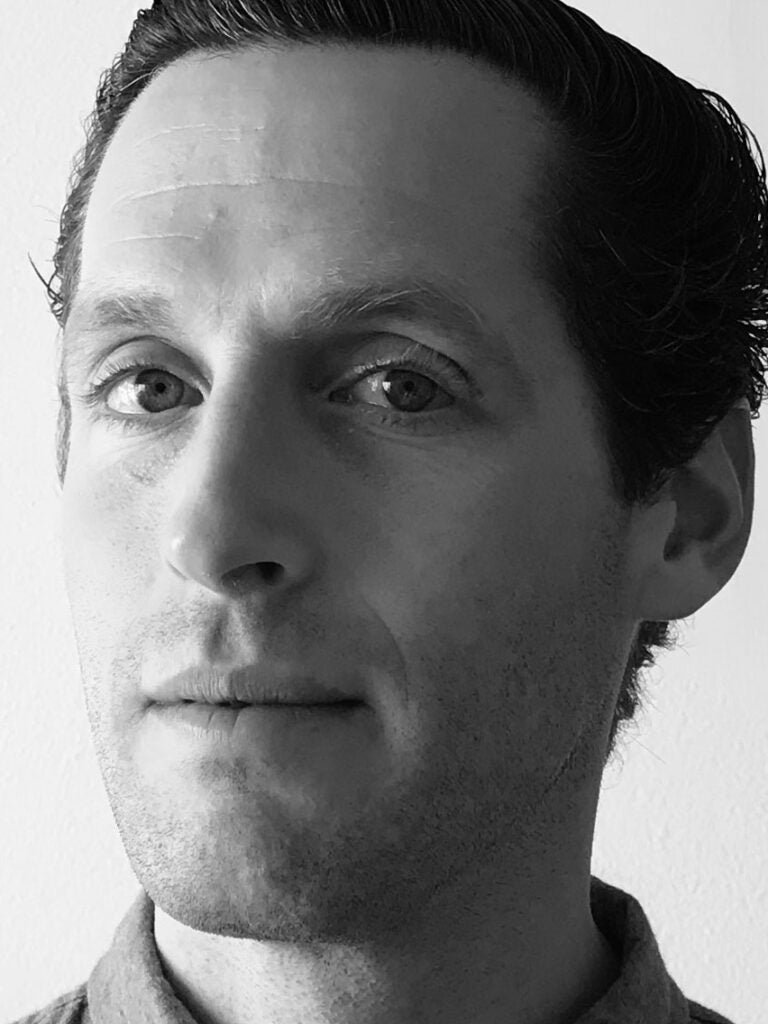
Michael McCarthy
Michael A. McCarthy is a continuing 2021-2023 USC Berggruen Fellow. He is an economic democracy activist and Associate Professor of Sociology at Marquette University. He holds a PhD and MA from New York University and a BA from the University of California, Los Angeles. Much of his work is on power and finance. He is the author of the award-winning book, Dismantling Solidarity: Capitalist Politics and American Pensions since the New Deal (Cornell University Press, 2017), which explains the marketization of old-age income in the US. He is co-editor of the volume Rethinking Class and Social Difference (Emerald, 2020) through the Political Power and Social Theory book series and has written for several peer-reviewed journals, including Annual Review of Sociology, Critical Historical Studies, Labor Studies Journal, Mobilization, Politics & Society and Socio-Economic Review. He is also a regular contributor to Jacobin Magazine and has advanced public debates about economic democracy in venues such as The Washington Post, Boston Review, Renewal, and Tribune Magazine. He is currently undertaking several projects about economic justice, including a co-authored book on the social theory of Erik Olin Wright. As a Berggruen Fellow at USC, he will complete a manuscript on democratizing finance, tentatively titled The Master’s Tools: Using Finance Against Capitalism, which is under contract with Verso Books
